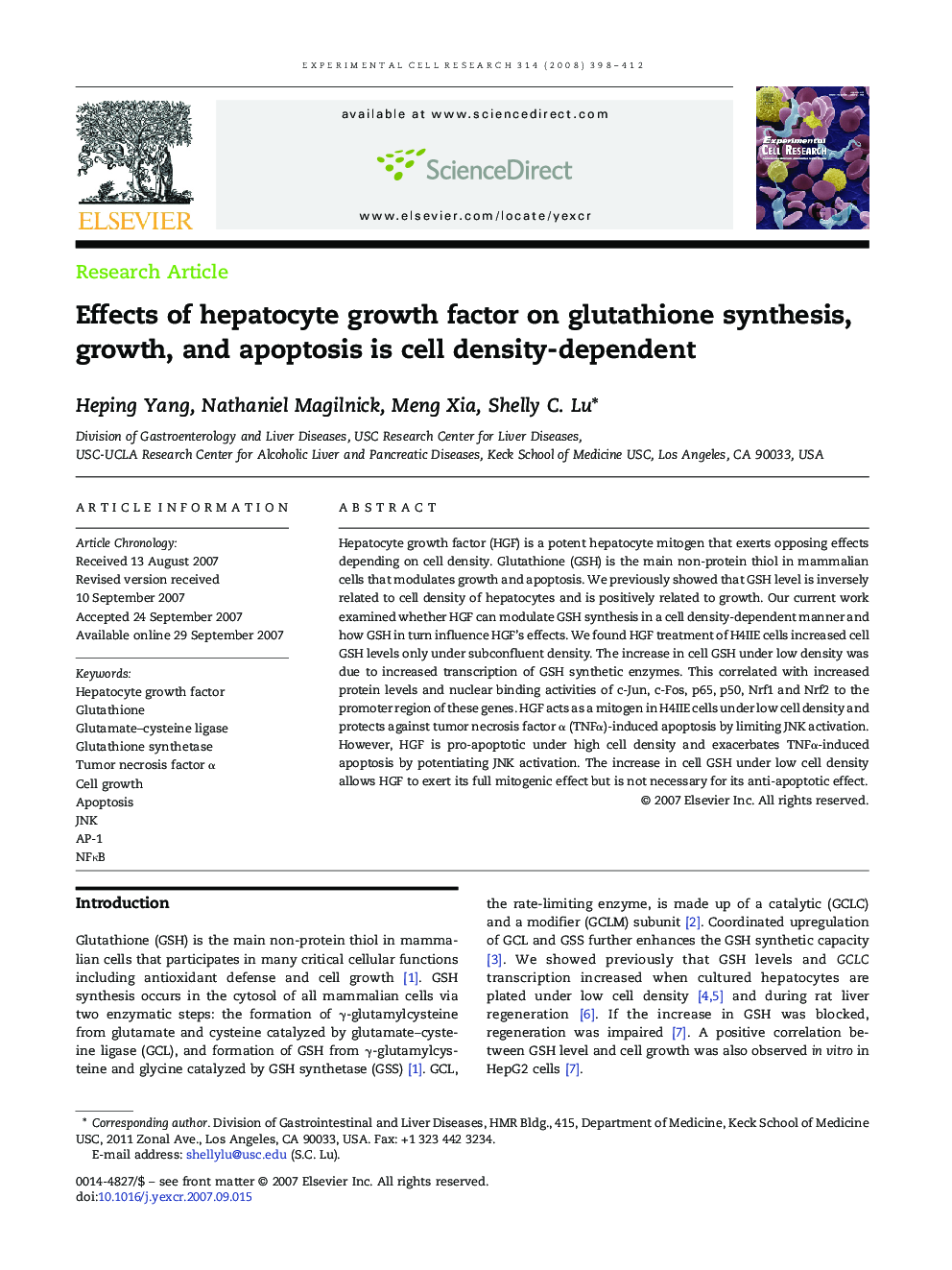| Article ID | Journal | Published Year | Pages | File Type |
|---|---|---|---|---|
| 2132958 | Experimental Cell Research | 2008 | 15 Pages |
Abstract
Hepatocyte growth factor (HGF) is a potent hepatocyte mitogen that exerts opposing effects depending on cell density. Glutathione (GSH) is the main non-protein thiol in mammalian cells that modulates growth and apoptosis. We previously showed that GSH level is inversely related to cell density of hepatocytes and is positively related to growth. Our current work examined whether HGF can modulate GSH synthesis in a cell density-dependent manner and how GSH in turn influence HGF's effects. We found HGF treatment of H4IIE cells increased cell GSH levels only under subconfluent density. The increase in cell GSH under low density was due to increased transcription of GSH synthetic enzymes. This correlated with increased protein levels and nuclear binding activities of c-Jun, c-Fos, p65, p50, Nrf1 and Nrf2 to the promoter region of these genes. HGF acts as a mitogen in H4IIE cells under low cell density and protects against tumor necrosis factor α (TNFα)-induced apoptosis by limiting JNK activation. However, HGF is pro-apoptotic under high cell density and exacerbates TNFα-induced apoptosis by potentiating JNK activation. The increase in cell GSH under low cell density allows HGF to exert its full mitogenic effect but is not necessary for its anti-apoptotic effect.
Keywords
Related Topics
Life Sciences
Biochemistry, Genetics and Molecular Biology
Cancer Research
Authors
Heping Yang, Nathaniel Magilnick, Meng Xia, Shelly C. Lu,
